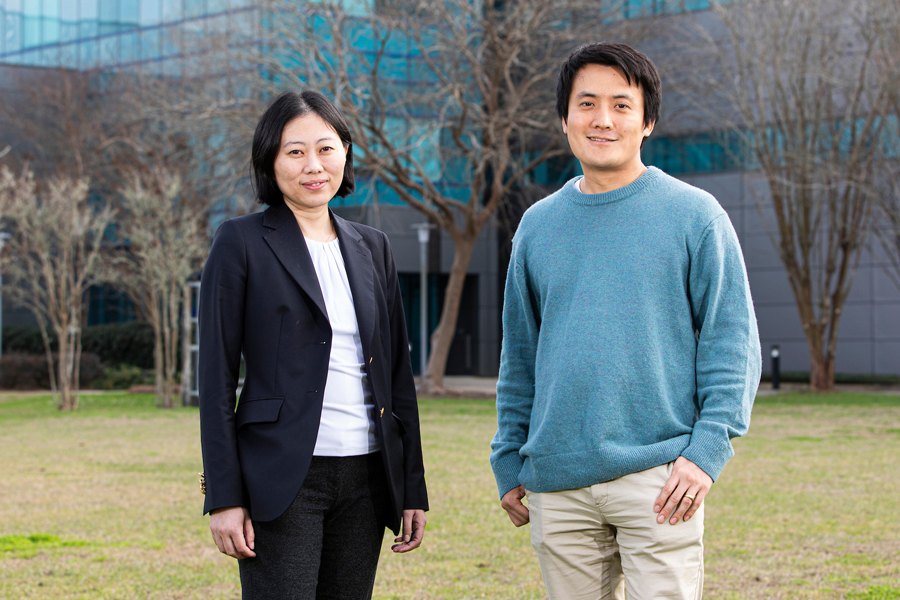
Two researchers in the FAMU-FSU College of Engineering are winners of prestigious National Science Foundation early-career awards that celebrate emerging leaders in their fields.
Juyeong Choi, an assistant professor in the Department of Civil and Environmental Engineering, and Lichun Li, an assistant professor in the Department of Industrial and Manufacturing Engineering, received Faculty Early Career Development, or CAREER, Awards and will receive a five-year grant from the NSF.
“We are extremely proud of the research these two faculty members have accomplished,” said Richard Liang, interim associate dean for research and graduate studies. “The NSF award allows researchers to grow and push boundaries and bring more student successes to the college and universities.”
Choi received the award for his work developing sustainable waste management practices in building demolition. He is leading a research team to investigate the impacts of decisions made by various stakeholders across a building’s lifecycle on material use, reuse and recycling. Choi plans to develop a holistic approach to maximize recyclable and reusable material yields by harvesting sustainable material during the demolition.
“I am humbled and honored to receive this award,” he said. “I am grateful to my family for their unwavering support and my colleagues at the department and the Resilient Infrastructure and Disaster Response (RIDER) Center for their advice and encouragement.”
Li is investigating innovative methods to integrate artificial intelligence, control theory and game theory to provide efficient computation algorithms handled on a typical computer. The idea is to make it possible to fight intelligently and efficiently against cyberattacks and rapidly deploy resources in the latest ultra-dense computer networks.
“I am very thankful to have recognized and received the NSF grant,” Li said. “We will add the topic of video game development into a freshman course and provide early research opportunities to undergraduate students, especially female students. This will help support STEM initiatives as well.”



